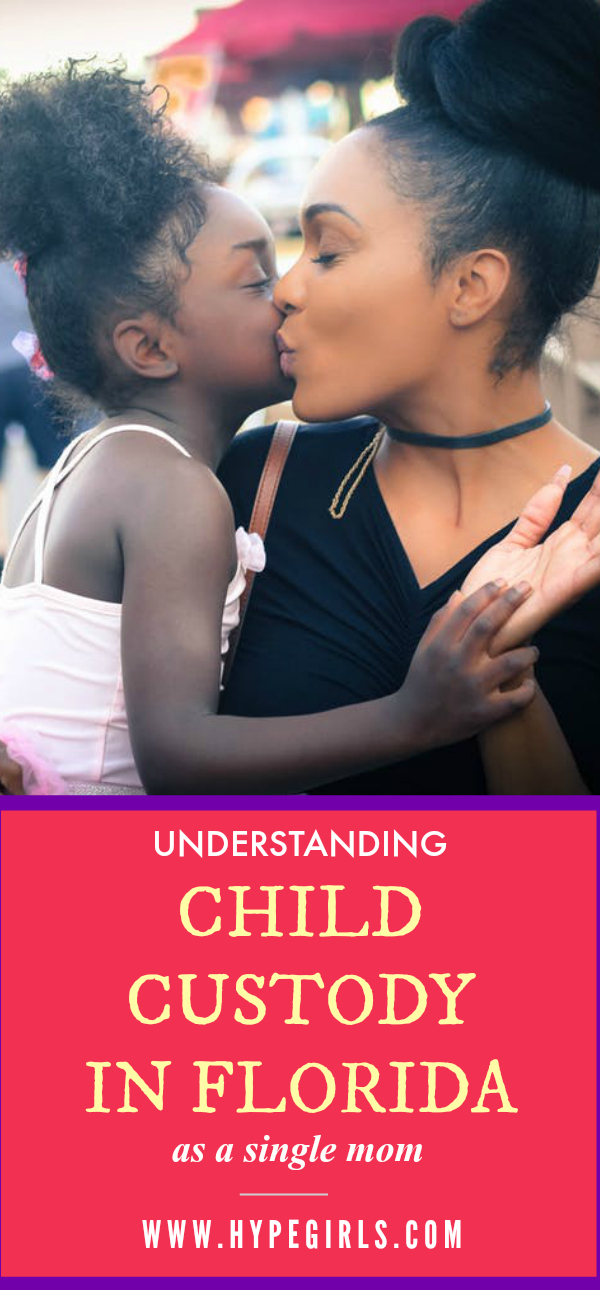
Being a mom isn’t an easy job, but being a divorced or single mom is a unique challenge that only other divorced, single moms can relate to.
While I am neither divorced nor single, I have a lot of respect for the mothers out there that are doing it on their own – with or without support. But what has always concerned me is the lack of general knowledge Miami moms have when it comes to understanding child custody laws in Florida.
That is a huge problem for me.
Ladies, knowledge is power. And understanding the system that controls who has access to your children until they reach adulthood is crucial.
But hey, single moms have a lot on their plate. And getting consistent advice from a lawyer can get pretty expensive.
Although child custody is not something I am currently dealing with myself, it could happen! I wanted to get a better understanding of how the legal system worked when it comes to child custody.
I asked a few of you Miami mamas on our Facebook page, what your concerns were when it came to child custody laws in Florida. I then took those concerns and I asked attorney Marck K. Joseph, Esq of The Joseph Firm, P.A. to clarify for us.
In Part 1 of this 3 part mini series, we will cover the topic that seemed to concern you the most: Time-sharing and visitation.
Let’s dive right in shall we?
What is child custody? What are the types?
Florida no longer does child custody, we now do time-sharing, but in other states, they may use this distinction.
Joint and sole custody are typically the types offered in any given state. But to summarize, it’s essentially the determination of how the rights to decisions and access to the child(ren) amongst other things related to the child. At some point given the facts of each individual case, the courts make a determination of what type of custody parents would have.
Time-sharing is based on a different concept. In Florida, the court’s feel that both parents have equal rights to their child(dren) called shared parental responsibility (the rights to determine decisions and access to the child) unless it is not in the best interest of the child”.
What will determine who gets more custody?
With the time-sharing concept in mind, in Florida, both parties are considered the “custodial” parents and the child is considered to be living with both parents. So the court determines a “time-sharing” schedule (a schedule which determines which day the child(ren) are with each parent, including vacations and holidays).
What are visitation rights?
This answer varies by state, however, in Florida, there is no visitation unless the other parent has been determined to NOT be allowed any time-sharing (usually in more extreme circumstances).
Will my parents or his parents (grandparents) have the right to see my child?
In Florida, grandparents do not have any legal right to see their grandchild(ren).
What will determine who gets more custody or time-sharing?
The court determines a “timesharing” schedule (a schedule which determines which day the child(ren) are with each parent, including vacations and holidays). This can vary based on the child’s current needs, location and stability of the parent.
When I have my child, am I allowed to leave them with a babysitter or nanny?
This is typically allowed so long as it is not done and infringes on the right to the other parent to have access to the child.
What do I do if my ex violates our custody agreement?
If a party violates the agreement, a Motion for Contempt or Motion to Enforce Agreement is the appropriate filing with the court. Establishing an emergency pick-up order is important in case a parent refuses to send a child back after the child has been with the other for time sharing. This is also helpful when you have reason to believe that your child is in some sort of danger while in the care of the other parent, and want the court to help reclaim possession of the child.
My child’s father and I have a great relationship. Is it better for us to go to court to have a custody agreement or can we do it on our own?
In most situations, it’s typically better to have a custody agreement in Court as it provides for consequences in the event either party doesn’t agree. However, if the parties can operate their co-parenting without the need for entering the court system then that is fine as well.
How can I make the transition easier for my children?
The best way to transition the children is to always be willing to co-parent and to only “break up” the relationship with the other parent, but maintain the same dynamic of raising your children. In other words, the only thing which should change is the relationship with the other parent, not the children, and the same should go for the allowed relationship with the other parent and the children.
Mr. Joesph is a Family Law Practitioner and Florida Supreme Court Certified Family Mediator. With years of family law experience under his belt, he understands how important family matters are, as well as the sometimes devastating consequences that can come from an ugly legal battle.
Learn more about The Joseph Firm services and subscribe to their YouTube for more family law tips and advice.
Save this article for later by pinning the image below:

On Facebook? Comment through your profile below!








